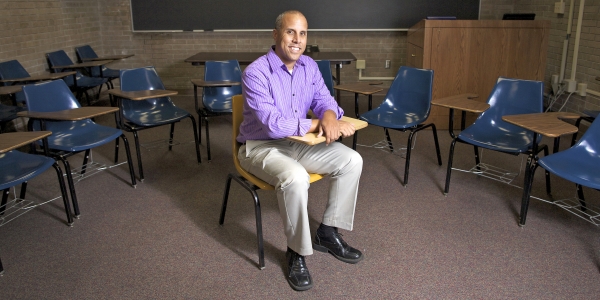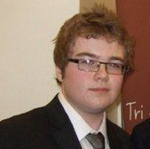 Ask Americans if their school education made them interested in becoming an entrepreneur, and 51% will say it did, a new poll from Gallup shows. But ask around among Europeans, and only a quarter say that it did.
Ask Americans if their school education made them interested in becoming an entrepreneur, and 51% will say it did, a new poll from Gallup shows. But ask around among Europeans, and only a quarter say that it did.
So what is it about U.S. education that might encourage budding business leaders?
Partly, U.S. society overall values entrepreneurship highly, typically more than European societies, people seem to generally agree.
Take Andreas Goeldi, a Swiss-born Internet entrepreneur based in Cambridge, Mass., who has written about the issue on his blog. He describes what he sees as a cult of entrepreneurship in the U.S., compared to a higher degree of risk aversion in Europe. Goeldi argues that Europeans attach so much shame to failing at starting a business they tend not to.

 Several years before pronouncing that the "
Several years before pronouncing that the "
 We’ve searched the web (and James’ back catalogue) to bring you 10 of the greatest gadgets that have somehow made their way from the silver screen to the real world.
We’ve searched the web (and James’ back catalogue) to bring you 10 of the greatest gadgets that have somehow made their way from the silver screen to the real world.
 Cities, states, and regions often battle to get the best and the
brightest young people to live and work in their locales. Part of this
competition involves attracting talented individuals, but another part
involves keeping them in the place where they were born and raised,
fighting what many observers call “brain drain.”
Cities, states, and regions often battle to get the best and the
brightest young people to live and work in their locales. Part of this
competition involves attracting talented individuals, but another part
involves keeping them in the place where they were born and raised,
fighting what many observers call “brain drain.” When a customer commits to spend money with your company, that is a “booking”. A booking is often tied to some form of contract between your company and the customer. The contract can be simple or very complicated. And some bookings do happen without a contract. Examples of these contracts with customers include an insertion order in advertising, a license agreement in enterprise software, and a subscription agreement in “software as a service” businesses.
When a customer commits to spend money with your company, that is a “booking”. A booking is often tied to some form of contract between your company and the customer. The contract can be simple or very complicated. And some bookings do happen without a contract. Examples of these contracts with customers include an insertion order in advertising, a license agreement in enterprise software, and a subscription agreement in “software as a service” businesses. Mark James, a visiting lecturer at the University of West Florida, declared his summer course in English literature technology-free—he skipped the PowerPoint slides and YouTube videos he usually shows, and he asked students to silence their cellphones and close their laptops.
Mark James, a visiting lecturer at the University of West Florida, declared his summer course in English literature technology-free—he skipped the PowerPoint slides and YouTube videos he usually shows, and he asked students to silence their cellphones and close their laptops. Each year, Canada funds more than $12 billion in research and development to create the ideas that will become the basis for next-generation products.
Each year, Canada funds more than $12 billion in research and development to create the ideas that will become the basis for next-generation products. Apple
Apple Burned by a previous experience running a venture-capital-backed
technology start-up, Elizabeth Charnock vowed to do things differently
the next time. Despite challenges, Ms. Charnock, 43, is now making good
on her promise as chief executive and founder of
Burned by a previous experience running a venture-capital-backed
technology start-up, Elizabeth Charnock vowed to do things differently
the next time. Despite challenges, Ms. Charnock, 43, is now making good
on her promise as chief executive and founder of  New York City would seem a logical place to find a corporate leader, such as Richard A. Gross, on the front lines of economic innovation.
New York City would seem a logical place to find a corporate leader, such as Richard A. Gross, on the front lines of economic innovation.
 I read a few articles about how Christian Owens became a millionaire by the time he was 16. So I invited him to Mixergy to talk about how he did it.
I read a few articles about how Christian Owens became a millionaire by the time he was 16. So I invited him to Mixergy to talk about how he did it. tart listening for guidance on innovation and you tend to hear a lot about
tart listening for guidance on innovation and you tend to hear a lot about  An Irish energy expert's new book says Ireland has the potential to
turn its energy the color of its green shamrocks and put lots of gold
into the pockets of the Irish who lead the transition.
An Irish energy expert's new book says Ireland has the potential to
turn its energy the color of its green shamrocks and put lots of gold
into the pockets of the Irish who lead the transition. Santa Clara, Calif. -- What is the secret sauce behind
Santa Clara, Calif. -- What is the secret sauce behind  Sharks have remained relatively unchanged by evolution for 400 million years, but
Sharks have remained relatively unchanged by evolution for 400 million years, but 